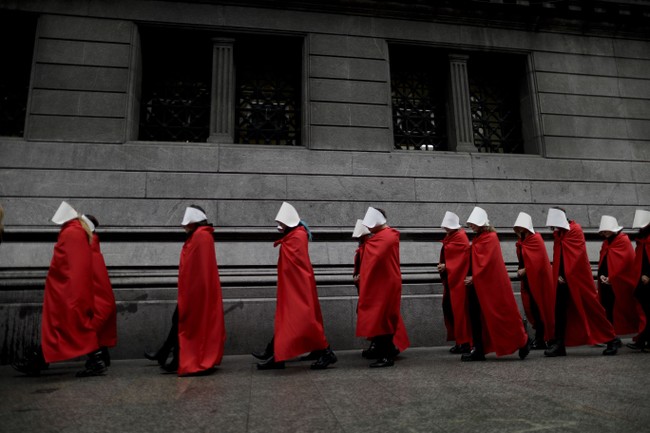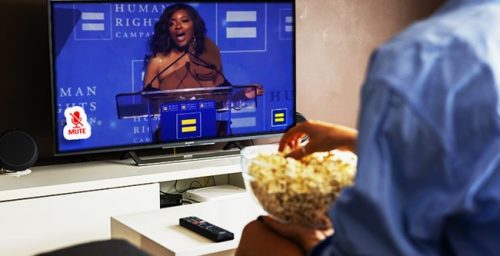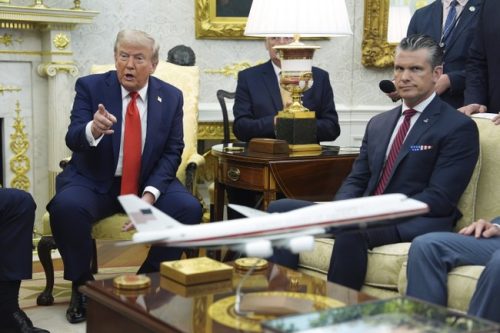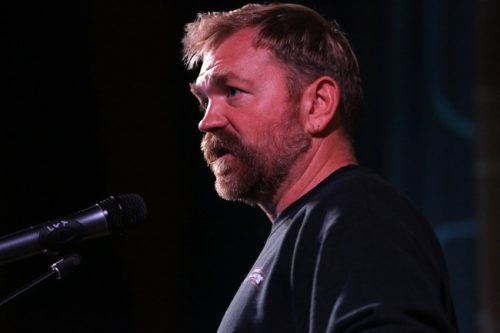A brisk take on a media tantrum: a bestselling novel is widely available, but some outlets and its author cast removal choices as a sweeping ban, and that spin deserves a closer look.
If you search for Margaret Atwood’s The Handmaid’s Tale online you will find it for sale in multiple formats and price points, so calling it banned is inaccurate. Retail availability is a simple, verifiable fact: stores sell it, and readers can buy it. That reality undercuts the dramatic narrative some outlets are pushing.
Libraries and bookstores make stocking decisions all the time based on audience, budget, and values; that is curation, not a government-ordered prohibition. A local board or shop can choose what to shelve or remove without it becoming a constitutional crisis. Framing ordinary marketplace or institutional choices as sweeping censorship is misleading and feeds outrage for clicks.
Margaret Atwood and certain segments of the media have framed the conversation as if there is a coordinated ban on the book, which elevates a selection decision into a persecution story. That posture treats scarcity as persecution and invites sympathy for a narrative that does not match the facts. When journalists repeat that framing without checking distribution and availability, they fail their audience.
Margaret Atwood’s “The Handmaid’s Tale” sold more than 10 million copies and spawned an Emmy-winning Hulu series, but the Canadian author dismissed the notion that the dystopian novel is her magnum opus.
Margaret Atwood, author of 64 books including “The Handmaid’s Tale,” has seen her work banned for content deemed overly sexual, morally corrupt, and anti-Christian. https://t.co/nBbi6le8WX pic.twitter.com/nT8Vlk0BbV
— 60 Minutes (@60Minutes) November 10, 2025
The 85-year-old author said she believes that if not for the ongoing rollback of reproductive rights and the overturning of Roe v. Wade in 2022, the 1985 novel would probably just “be sitting on a shelf somewhere.” Instead, the scarlet costume made famous by the wildly popular book has become a uniform of real-life protest and resistance.
“It’s not due to me or the excellence of the book,” she said. “It’s partly in the twists and turns of history.”
“The excellence of the book?”
I’ve seen the book and know several people who have read it, including this author, and we don’t find it a masterpiece on par with literary immortals. Its present cultural standing owes more to political rebranding and television than to literary merit alone. When a book is elevated into a political symbol, the conversation about its quality gets lost in virtue signaling.
CBS allowed narratives on air that suggest free speech or press led to historical atrocities, and that kind of sloppy framing shows why their take on “banning” deserves skepticism. Media outlets that amplify dramatic claims without clear evidence should be called out for blurring facts and opinion. If you let actors on a news platform rewrite definitions, the public gets misled.
We’d love to hear the logic behind calling wide retail availability a ban, because words still matter in public debate. Stretching definitions until they mean the opposite of their dictionary sense only warps the debate. Honest reporting would note availability and contextualize which institutions did what and why.
This is the worst ban ever.
Why the insistence on victimhood? For some on the Left, being seen as oppressed is politically useful, so claims of censorship keep circulating even when they don’t fit the facts. Turning ordinary disagreements over library policy into persecution theater weakens real defenses of free expression when those defenses are genuinely needed.
Curiously, few of these same activists raise as much fuss when schools prohibit students from carrying or reading certain religious texts, even in cases where individual students are restricted. That selective outrage reveals priorities: some books are defended as symbols, others are dismissed depending on who is offended.
Parents fund public education through taxes and deserve a voice in what appears in school libraries and classrooms; that basic civic fact shapes reasonable limits on materials accessible to minors. Local control, not national grandstanding, is the healthy default for community standards. If a book is controversial in a school setting, the right move is debate and policy at the local level, not national melodrama.
Finally, the broader pattern here is one of media outlets leaning into hot takes and manufactured disputes because controversy drives engagement. When journalists prioritize spectacle over sober reporting, the public conversation degrades and definitions like “banned” get hollowed out for headlines. That trend is the real problem worth addressing.






